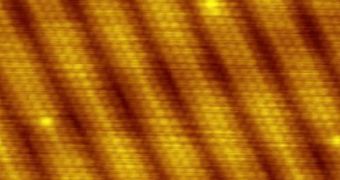The macroscale world is a very well-defined place, with the natural laws of classical physics governing everything. But all that has no relevance at the subatomic, elementary level, where particles appear capable of existing in two places at the same time, and can also spin in different directions concomitantly. Researchers want to be able to harness these amazing properties that quantum systems have for producing computers that would be capable of a tremendous analysis power, which they could then use to gain new insight into the molecular world. At this point, analyzing it is nearly impossible, LiveScience reports.
When looking at molecules, modern supercomputers need to model the behavior of individual atoms, which is extremely difficult and labor-intensive to do. Additionally, if experts want to simulate for example how a drug is spread in the human body upon injection or ingestion, they have to do the same thing, but with even more modeling. In spite of evolving constantly, supercomputers still fall short of this amazingly complex task, therefore a new approach is needed, if valid results are to be obtained in feasible time frames.
According to Harvard University quantum information chemist and researcher James Whitfield, “If you simulate anything larger than four or five atoms – for example, a chemical reaction, or even a moderately complex molecule – it becomes an intractable problem very quickly.” He reveals that the maximum performance possible with these systems is approximating the relationships that occur when a chemical reaction takes place. But experts take solace in the fact that atoms and molecules can be looked at as quantum systems.
“If it is computationally too complex to simulate a quantum system using a classical computer, why not simulate quantum systems with another quantum system?” Harvard quantum information chemist Alan Aspuru-Guzik adds. But the problem is that quantum computers are still many years away. The farthest we got thus far was in creating quantum bits (qubits) that were stable for fractions of a second, and solid-state, two-qubit processors that could only process a very limited amount of information. But advancements in this field will surely enable scientists of the future to conduct highly complex applications before sending drugs to human trials, which could make developing new therapies easier.

 14 DAY TRIAL //
14 DAY TRIAL //